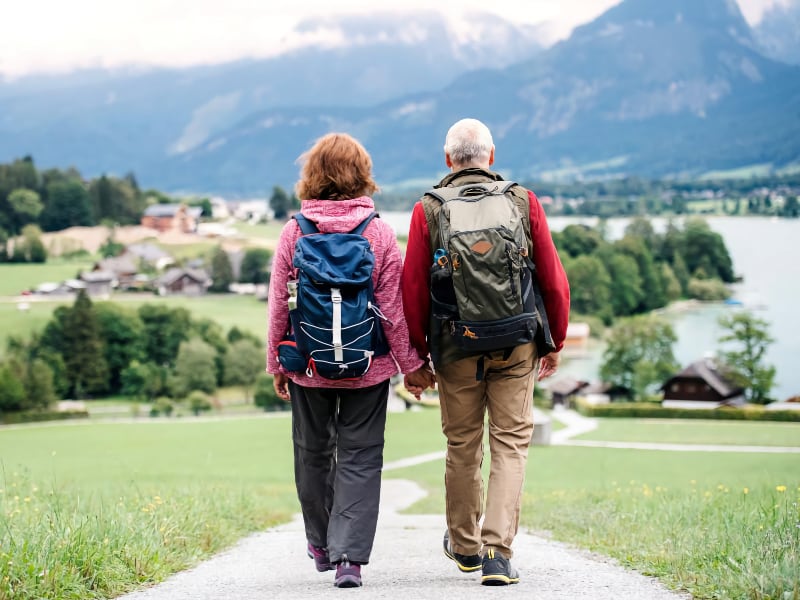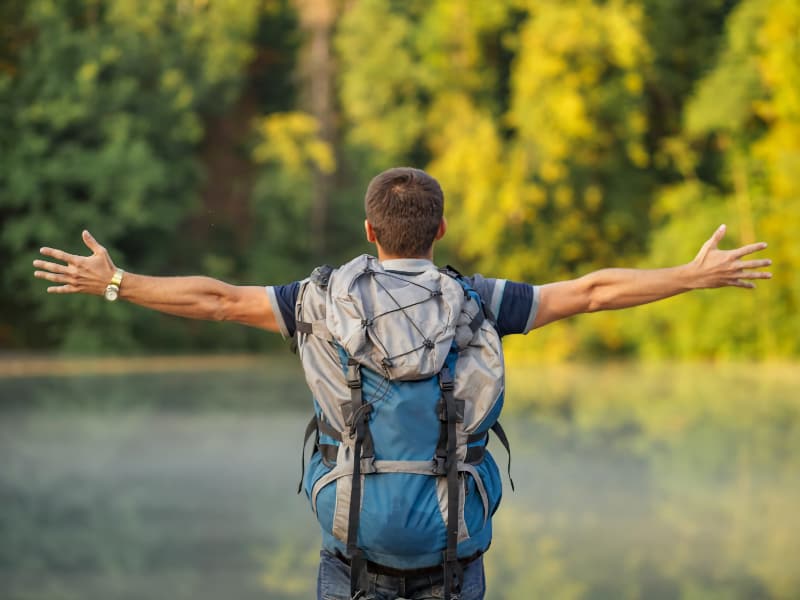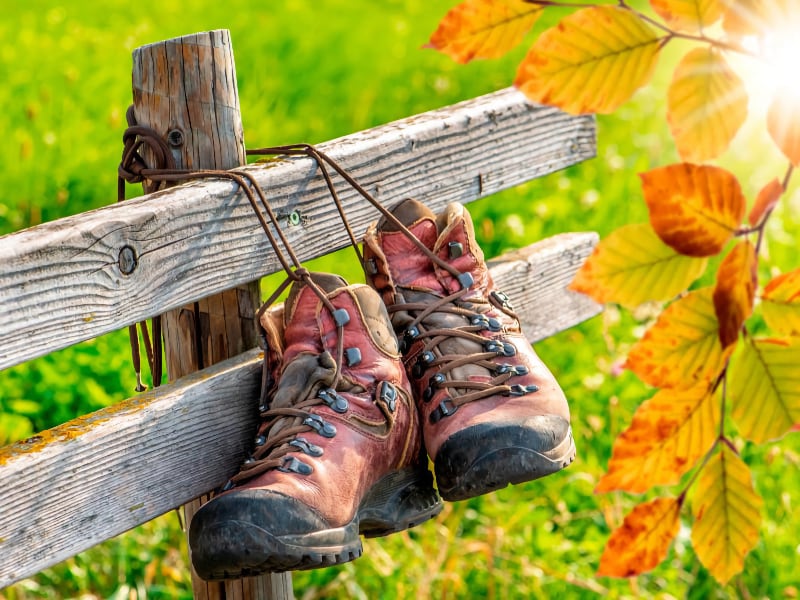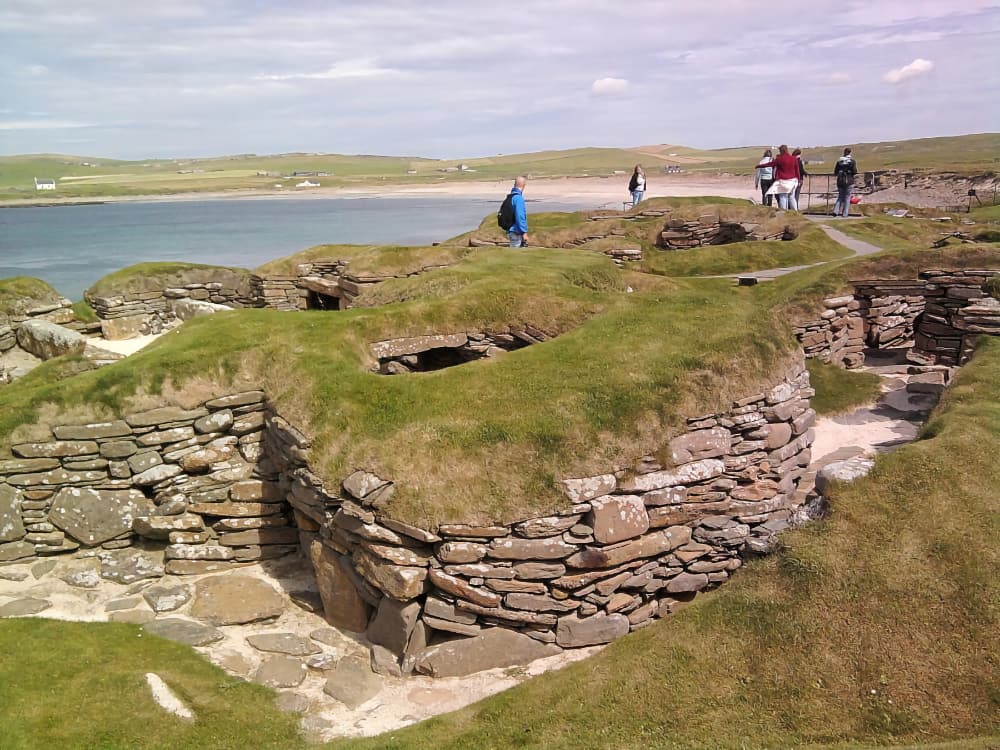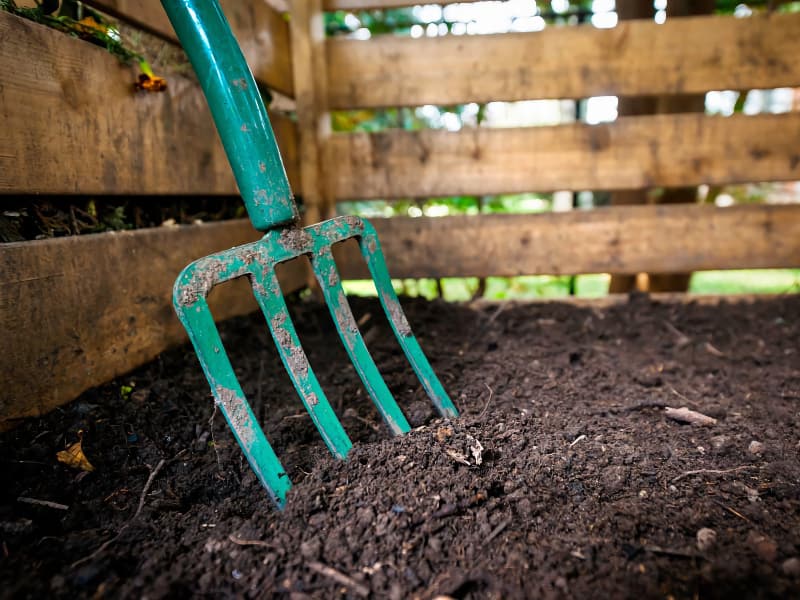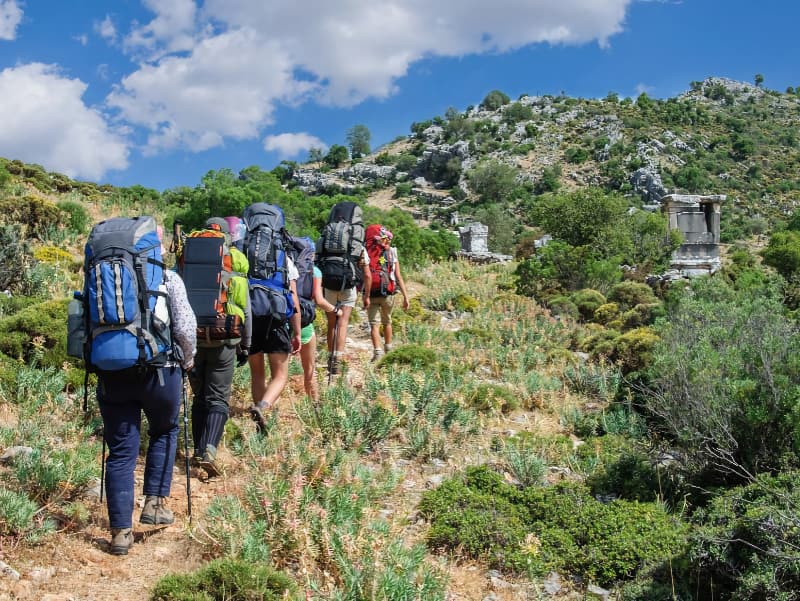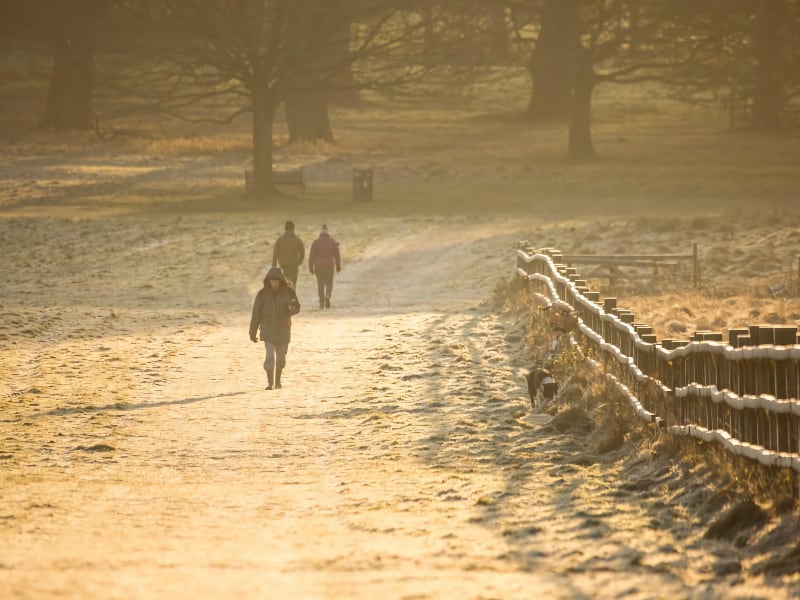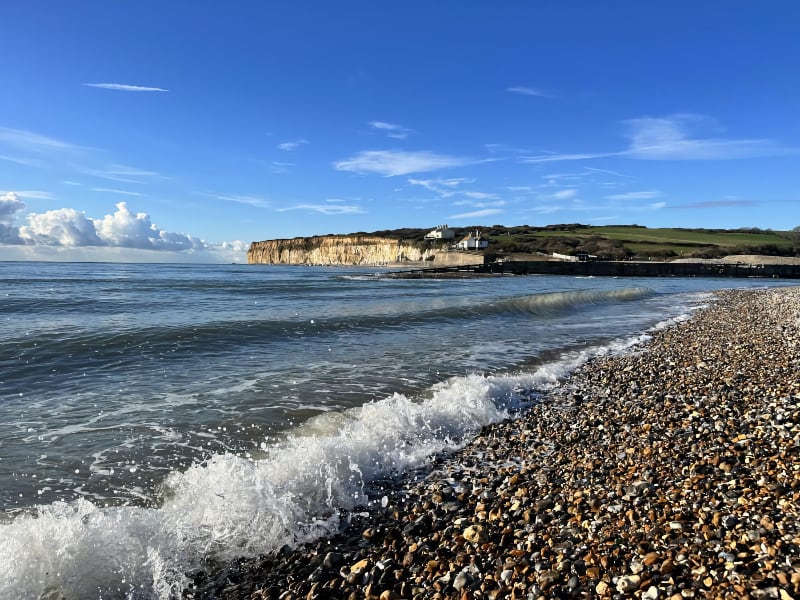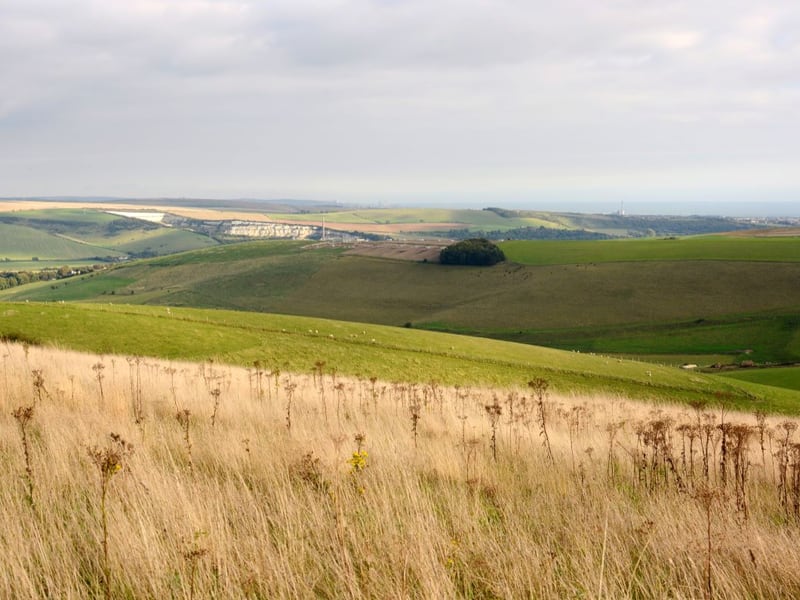The UK’s natural landscapes host an abundance of wildlife and habitats that should not only be celebrated for their diversity but are also worth protecting. As we head outdoors to hike, camp and explore, it’s important we do so responsibly because our actions can have unintended impacts on local plant and animal species if we are not mindful.
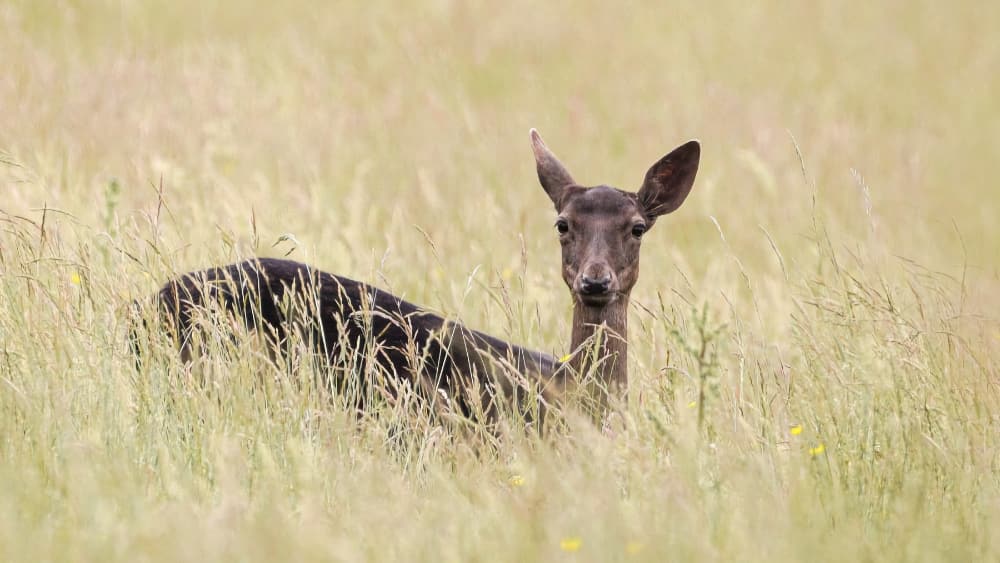
However, with some awareness and consideration we can reduce our footprint and help safeguard threatened species and sensitive environments. Whether you’re passionate about being active, hiking, camping or nature itself, we’ll highlight ways you can engage in conservation efforts to help protect the vibrant biodiversity of the places you love and explore.
Take Out What You Bring In
When exploring the outdoors, be sure to carry out any litter you brought with you by embracing Leave No Trace principles. Leaving behind rubbish like food wrappers, bottles, cans and bags can be harmful to local wildlife. For example, animals may eat debris which could make them ill or even prove fatal. Taking away everything you brought with you keeps habitats clean and protects creatures. who call the area home. from the dangers of careless litter.
Stick to the Path
When hiking, be sure to stay on designated trails and paths at all times. Venturing off-trail, even just a few steps, can damage sensitive vegetation and disrupt wildlife in the area. Fragile habitats like wetlands, nesting sites and rare plant species or ecosystems can be harmed by straying from the established track. Sticking to marked trails reduces your impact on the landscape and avoids coming into close contact with the native species relying on undisturbed habitats.
Give Wildlife Space
If you do happen to spot wildlife while exploring, be sure to give them ample space. Pass by quietly and keep a safe distance away to avoid stressing the animals. For instance, deer are easily startled and while they will have an eye on you, avoid sudden movements that could be perceived as a threat. Do not approach, surround or chase wildlife you encounter. Giving animals the space and solitude they need preserves natural behaviours and reduces human impacts.
Keep Dogs Under Control
If exploring the outdoors with your dog, be sure to keep them on a lead at all times. Unleashed dogs may startle ground-nesting birds, chase deer or livestock, or stress local wildlife through their presence. Keeping your dog close by and restrained on a lead reduces these risks and prevents them from disturbing native species. Controlling your pet preserves wild animal welfare and allows everyone to enjoy the outdoors safely.
Don’t Feed the Animals
You may be tempted to feed wildlife you encounter, but this should be avoided. Feeding can make animals reliant on human food sources, disrupting their natural foraging behaviours. It can also make them lose their fear of people, leading to dangerous human-animal interactions. Enjoy observing wildlife in their natural state by not feeding them and letting nature take its course. If you spot an injured animal you may wish to call a local wildlife trust but ensure that you do not take matters into your own hands.
Be Mindful of Breeding Seasons
When planning your outdoor adventures, be aware of key breeding and nesting seasons for local wildlife. Sensitive habitats like shorebird nesting areas are best avoided during prime seasons. Checking area regulations and guidelines can inform your route planning and timing. Being mindful of species’ lifecycles and reducing disturbances during vital periods supports native wildlife populations.
Learn About At-Risk Species
Take time to learn about at-risk and endangered species native to the places you frequently visit. Understanding threats to declining regional wildlife better informs actions to help protect them. Many local nature organisations offer species information and ways to get involved in monitoring or habitat projects. Increasing your own awareness leads to more thoughtful actions when encountering sensitive ecosystems and the rare species relying on them.
Create a Wildlife Habitat
Look for opportunities to make your garden more wildlife friendly. Plant native flowers, shrubs, and trees to provide food and shelter for local species. Create small brush shelters, rock piles, birdhouses, and other protected spots tailored to animals in your area. Consider draping a pergola in climbing plants to provide shaded areas and seclusion. Enhancing your outdoor space to aid local nature supports biodiversity right at home.
Support Local Conservation
Look for opportunities to get involved with local conservation groups and efforts in your area. Many organisations carry out habitat protection, species monitoring and restoration projects that welcome volunteer participation. Assisting with initiatives like tree planting, invasive species removal, wildlife surveys and litter picks directly aids preservation. Supporting local conservation creates positive change and helps ensure the outdoors remain vibrant for generations.
Report Suspected Poaching
Keep an eye out for unlawful hunting, trapping or taking of wildlife while appreciating nature. If you witness or suspect illegal poaching activities, safely document details and report to the appropriate authorities. Signs like snares, bait piles or gunshots can indicate poaching; information aids wardens in catching violators. Standing up for protected species helps curb destructive poaching that threatens local ecosystems.
Foster Appreciation and Respect
Cultivating an appreciation for the beauty and complexity of the natural world motivates people to protect it. Share your sense of wonder and curiosity for nature with others, especially children. Modelling respectful, ethical enjoyment of the outdoors can inspire that in others. Fostering an empathetic connection to wildlife and ecosystems creates advocates for conservation.
Protect Nature Wherever Possible
The natural world around us is precious and worth protecting. We all have a role to play in stewarding and sustaining the landscapes we love to explore. By being mindful of our impacts, respecting wildlife and lending a hand in conservation, we can tread lightly while enjoying the great outdoors. With care and wisdom, we can safeguard the wild places and creatures that make the United Kingdom so beautiful.

